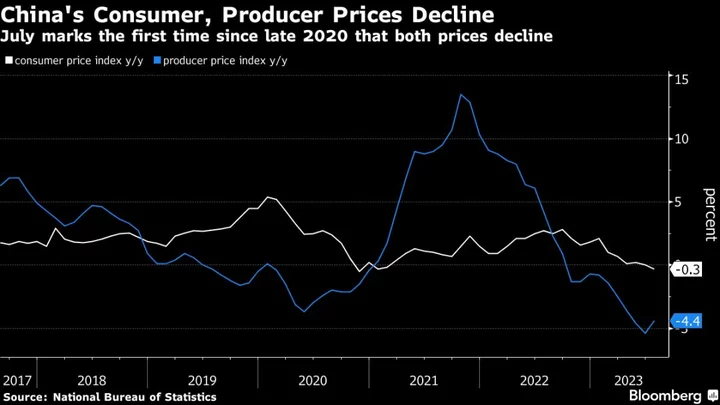Big chocolate companies are welcoming new European Union rules that protect forests, but which risk further hitting consumer wallets.
The EU is introducing laws that ensure that commodities including cocoa, coffee and palm oil aren’t grown on deforested land — and is also putting in measures to tackle issues like child labor in supply chains. Firms like Lindt & Spruengli AG, Ferrero SpA and Unilever Plc say they back the move because it looks after the environment and those who grow the crops.
But for shoppers — who increasingly want to know where their food comes from and whether it was ethically produced — it could come at a cost. No. 2 cocoa grower Ghana has warned that buyers should be ready to pay more because of the investment needed to set up systems tracking beans back to farms. That may potentially raise prices of everyday items like chocolate bars and shower gel for European consumers struggling with a cost-of-living crisis.
“There is clearly an investment that needs to be made,” said Francesco Tramontin, vice president of EU institutional relations at Kinder maker Ferrero. He said the company already has full traceability of farms it buys cocoa from.
The prospect of having to pay more for commodities like cocoa comes as inflation remains a particular problem for indulgent treats because of supply constraints. For example, cocoa futures have soared to a multiyear high and coffee prices have also jumped in London.
Premium chocolate producer Lindt, which also welcomed the new regulation and had been working toward it, declined to comment on the potential impact on consumers.
The new rules on deforestation come into force now, though companies have until the end of next year to comply. Ivory Coast and Ghana, the source of two-thirds of the world’s cocoa, are having to set up special systems that adhere to the EU’s requirements — such as geotagging land on which those products were harvested.
Unilever, which uses chocolate for its ice creams and buys Ghanaian cocoa through processor Barry Callebaut AG, said the “planet desperately needs” the measures and that they’ll mean a level playing field in Europe.
“I think Ghana’s right to say for as a country, they will need everyone to pay more, just like we do,” said Unilever head of nutrition Hanneke Faber. She said the company pays extra to make sure the commodity is produced without deforestation or slavery.
Unilever said so far it’s been able to avoid passing on prices to consumers and that it hopes it’s the case for the entire industry going forward.
Tracing cocoa currently takes place through voluntary sustainability programs run by individual companies. Each program has different criteria and national governments have no oversight. Ferrero’s Tramontin says the industry needs sustainability standards at policy level.
“Otherwise you will have just companies that kind of seal their supply chain, which will be good for them in terms of getting the cocoa in Europe, but not necessarily the impact that say at scale that everyone wants to have,” he said.
Nestle SA has committed to deforestation-free cocoa sourcing by 2023. Unilever says by the end of this year the cocoa it buys will also be deforestation-free. Some firms say that compliance with the rules is already embedded into their systems, but analysts have warned of a hit to some profitability.
For example, Barclays Plc estimates that compliance processes related to the rules for Barry Callebaut in 2025 will impact around 9% of 2023 Ebitda. The processor declined to comment.
--With assistance from Yinka Ibukun and Megan Durisin.
Author: Dasha Afanasieva, Paula Doenecke and Agnieszka de Sousa









